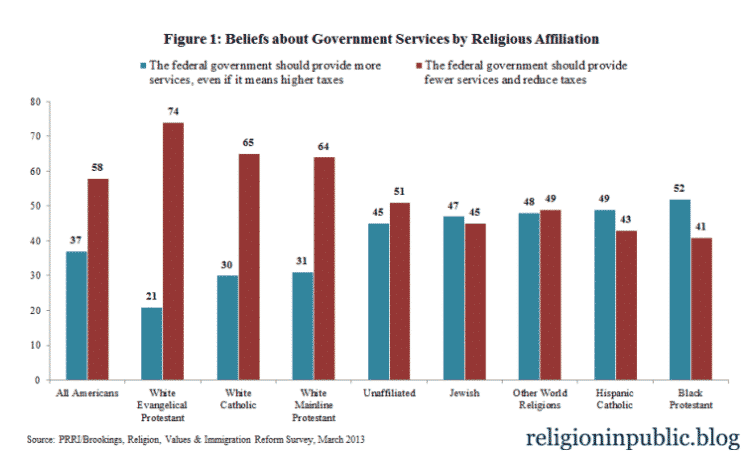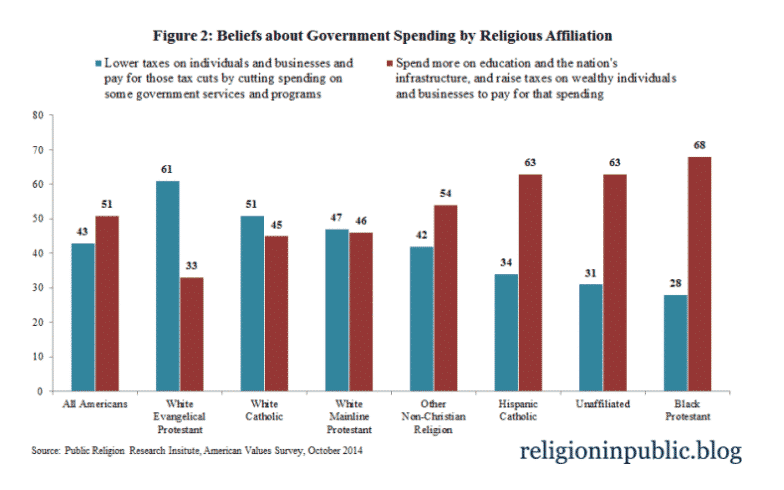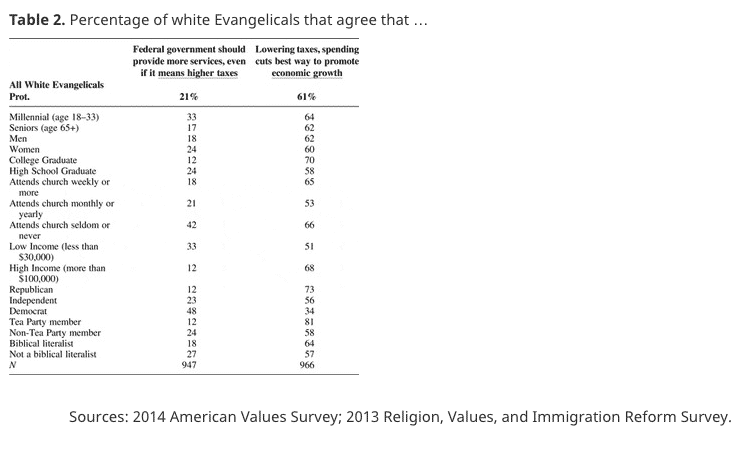Extraordinary new data on the relationship between race, religion and attitudes towards fiscal policy in the US from Melissa Deckman and coauthors Dan Cox, Robert Jones, and Betsy Cooper from PRRI . It confirms common knowledge, but to a truly staggering degree. The “shrink government at any price” congregation that egged on Republicans as they put America’s credit rating at risk and shut down government in the fall of 2013, is overwhelmingly white and evangelical.

Faith and the Free Market: Are Evangelicals Economic Conservatives Too?
When the basic question less gov/lower tax v. more gov/higher tax is put, white Americans in general are twice as likely to prefer small gov option, compared to hispanics and blacks who prefer big government. Not surprisingly, it is precisely around this issue that so much racist discourse circulates on the white side i.e. “welfare scroungers” etc. But even against the background of this big divide, the white evangelicals stand out. They are more than THREE times more likely to prefer small government. They are 69 % republican identified. And since 2009 they have flocked to the “Tea Party”.
If you sharpen the question to make it less about big gov v. small government and actually spell out what government spending might potentially involve (education and infrastructure) and who might benefit from lower taxes (individuals and businesses v. wealthy), a dramatic difference emerges. White catholics like the idea stimulating the economy by tax cuts for “individuals and businesses” far less and are drawn to public spending on education and infrastructure. Nor do they object as strongly to taxes on the wealthy. This is where the white evangelicals really stand out. By a margin of 2:1 they still prefer the “individualist” aka “selfish” tax cutting small government option.

Within the evangelical group there are further tell tale variations. A substantial minority of low income evangelicals in fact recognize their interest in government spending. But for high income groups, evangelical religion provides a very powerful rationalization for an extreme politics of individualized self-interest. Meanwhile, those who identify as Democrat amongst the evangelicals look like Democrats more generally. Amongst the anti-government group the Tea Party identifiers stand out as the avant-garde.

Politics really matters the authors conclude: “Emerging economic issues that have not been politically polarized are also less likely to engender opposition among white evangelical Protestants. Thus, a recent survey found that the overwhelming majority of white evangelical Protestants favor requiring companies to provide full-time employees with paid sick days, and paid leave for the birth of a child (Public Religion Research Institute 2014). In the absence of salient political cues, white evangelical Protestants are more likely to assess the merits of a policy on other factors. On more general orientations toward government spending and public investment at the expense of tax increases, however, evangelical Protestants remain the most committed of religious groups to Republican orthodoxy.”
